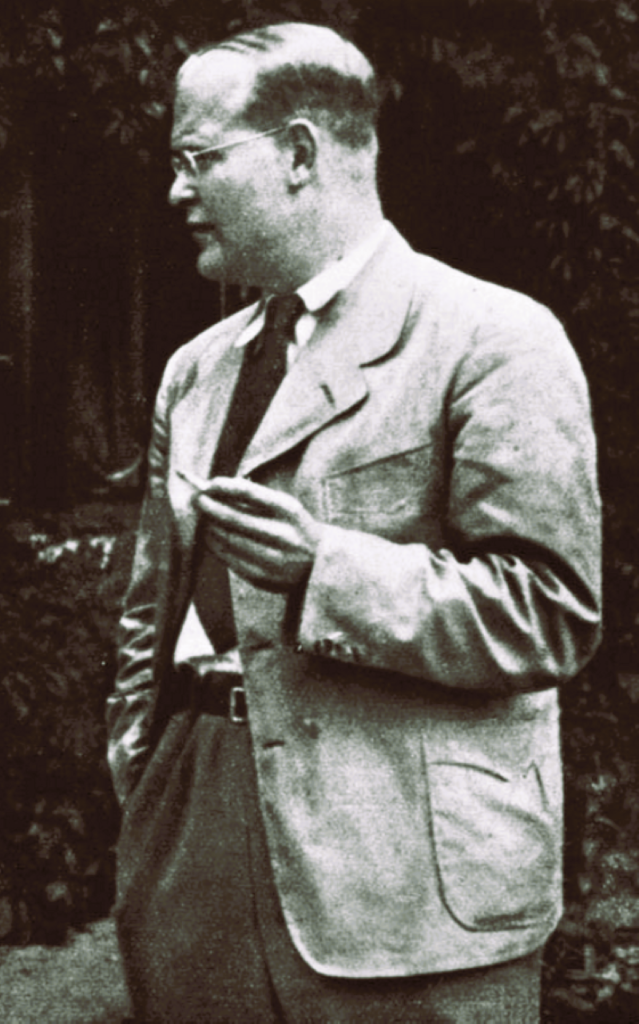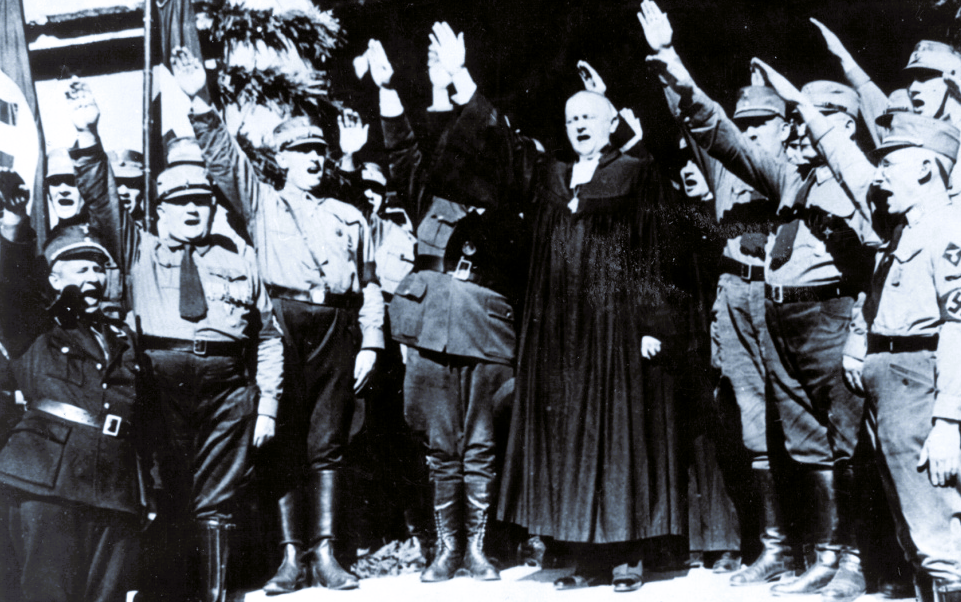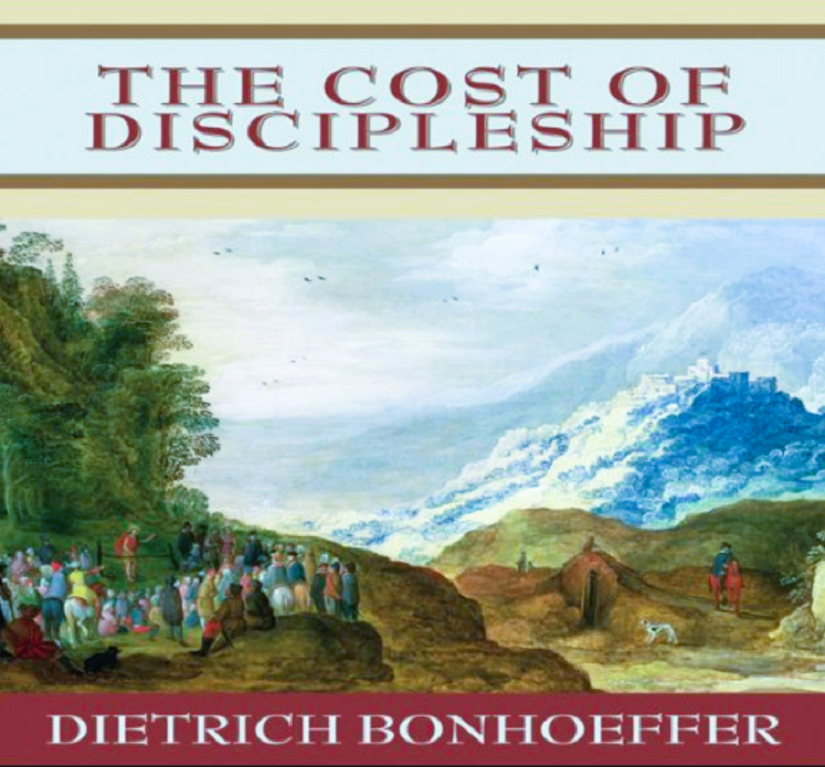
Dietrich Bonhoeffer was a German theologian, pastor, and anti-Nazi dissident who is widely recognized for his resistance against the policies of Adolf Hitler and the Nazi regime during World War II. Born on February 4, 1906, in Breslau, Germany (now Wrocław, Poland), Bonhoeffer grew up in a family of intellectuals and theologians.
He was ordained a Lutheran pastor in 1931, and served two Lutheran congregations, St. Paul’s and Sydenham, in London from 1933-35
In September 1933, the Nationalist church synod at Wittenberg voluntarily passed a resolution to apply the Aryan paragraph within the church, meaning that pastors and church officials of Jewish descent were to be removed from their posts. Regarding this as an affront to the principle of baptism, Martin Niemöller founded the Pfarrernotbund (Pastors’ Emergency League). In November, a rally of 20,000 Nationalist Deutsche Christens demanded the removal of the Jewish Old Testament from the Bible, which was seen by many as heresy, further swelling the ranks of the Pastors Emergency League.

In 1933, pastors saw Hitler as the saviour of the church
Within weeks of its founding, more than a third of German pastors had joined the Emergency League. It was the forerunner of the Bekennende Kirche (Confessing Church), which aimed to preserve historical, Biblically-based Christian beliefs and practices.[31] The Barmen Declaration, drafted by Barth in May 1934 and adopted by the Confessing Church, insisted that Christ, not the Führer, is the head of the Church.[32] The adoption of the declaration has often been viewed as a triumph, although by estimate, only 20% of German pastors supported the Confessing Church
Bonhoeffer became increasingly involved in the Confessing Church, a movement within German Protestantism that opposed the Nazification of the German Protestant churches. He was particularly outspoken against the regime’s attempts to control the churches and distort Christian doctrine to serve Nazi ideology.
One of Bonhoeffer’s most famous texts was his April 1933 essay, “The Church and the Jewish Question.” Addressing the challenges facing his church under Nazism, Bonhoeffer in this essay argued that National Socialism was an illegitimate form of government and hence had to be opposed on Christian grounds. He outlined three stages of this opposition. First, the church was called to question state injustice. Secondly, it had an obligation to help all victims of injustice, whether they were Christian or not. Finally, the church might be called to “put a spoke in the wheel” to bring the machinery of injustice to a halt.
One of Bonhoeffer’s most notable actions of resistance was his involvement in the Abwehr conspiracy, a plot by some members of the German military intelligence (the Abwehr) to overthrow Hitler. Bonhoeffer’s role was primarily to maintain contact with the British and American governments to secure their support for the coup and negotiate a peace settlement. However, the conspiracy was discovered, and Bonhoeffer was arrested in April 1943.
Bonhoeffer spent the next two years in prison, during which time he continued to write letters, reflections, and theological works. His most famous work, “The Cost of Discipleship,” explores the meaning of Christian discipleship in the face of challenges and suffering.

One of Bonhoeffer’s most famous texts was his April 1933 essay, “The Church and the Jewish Question.” Addressing the challenges facing his church under Nazism, Bonhoeffer in this essay argued that National Socialism was an illegitimate form of government and hence had to be opposed on Christian grounds. He outlined three stages of this opposition. First, the church was called to question state injustice. Secondly, it had an obligation to help all victims of injustice, whether they were Christian or not. Finally, the church might be called to “put a spoke in the wheel” to bring the machinery of injustice to a halt.
The core of the conspiracy to assassinate Adolph Hitler and overthrow the Third Reich was an elite group within the Abwehr (German Military Intelligence), which included, Admiral Wilhelm Canaris, Head of Military Intelligence, General Hans Oster (who recruited Bonhoeffer), and Hans von Dohnanyi, who was married to Bonhoeffer’s sister, Christine. All three were executed with Bonhoeffer on April 9, 1945. For their role in the conspiracy, the Nazis also executed Bonhoeffer’s brother, Klaus, and a second brother-in-law, Rudiger Schleicher, on April 23, 1945, seven days before Hitler himself committed suicide on April 30.
Later this year a movie directed by Todd Komarnicki titled “Bonhoeffer” will be released. The movie was mostly shot in Limerick
Sources
https://encyclopedia.ushmm.org/content/en/article/dietrich-bonhoeffer
https://www.history.com/this-day-in-history/defiant-theologian-dietrich-bonhoeffer-is-hanged

Donation
Your readership is what makes my site a success, and I am truly passionate about providing you with valuable content. I have been doing this at no cost and will continue to do so. Your voluntary donation of $2 or more, if you are able, would be a significant contribution to the continuation of my work. However, I fully understand if you’re not in a position to do so. Your support, in any form, is greatly appreciated. Thank you. To donate, click on the credit/debit card icon of the card you will use. If you want to donate more than $2, just add a higher number in the box left from the PayPal link. Your generosity is greatly appreciated. Many thanks.
$2.00
Leave a comment